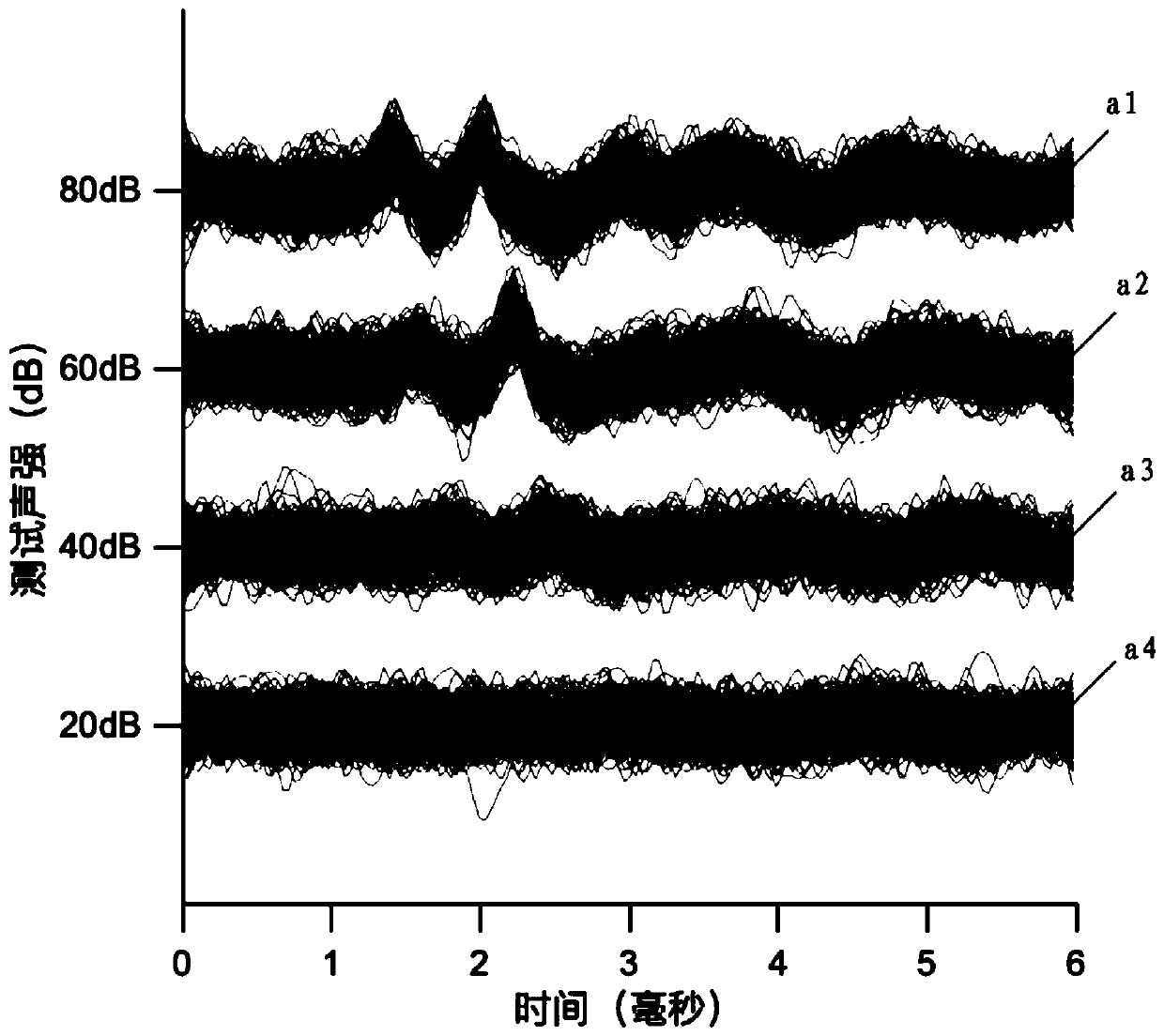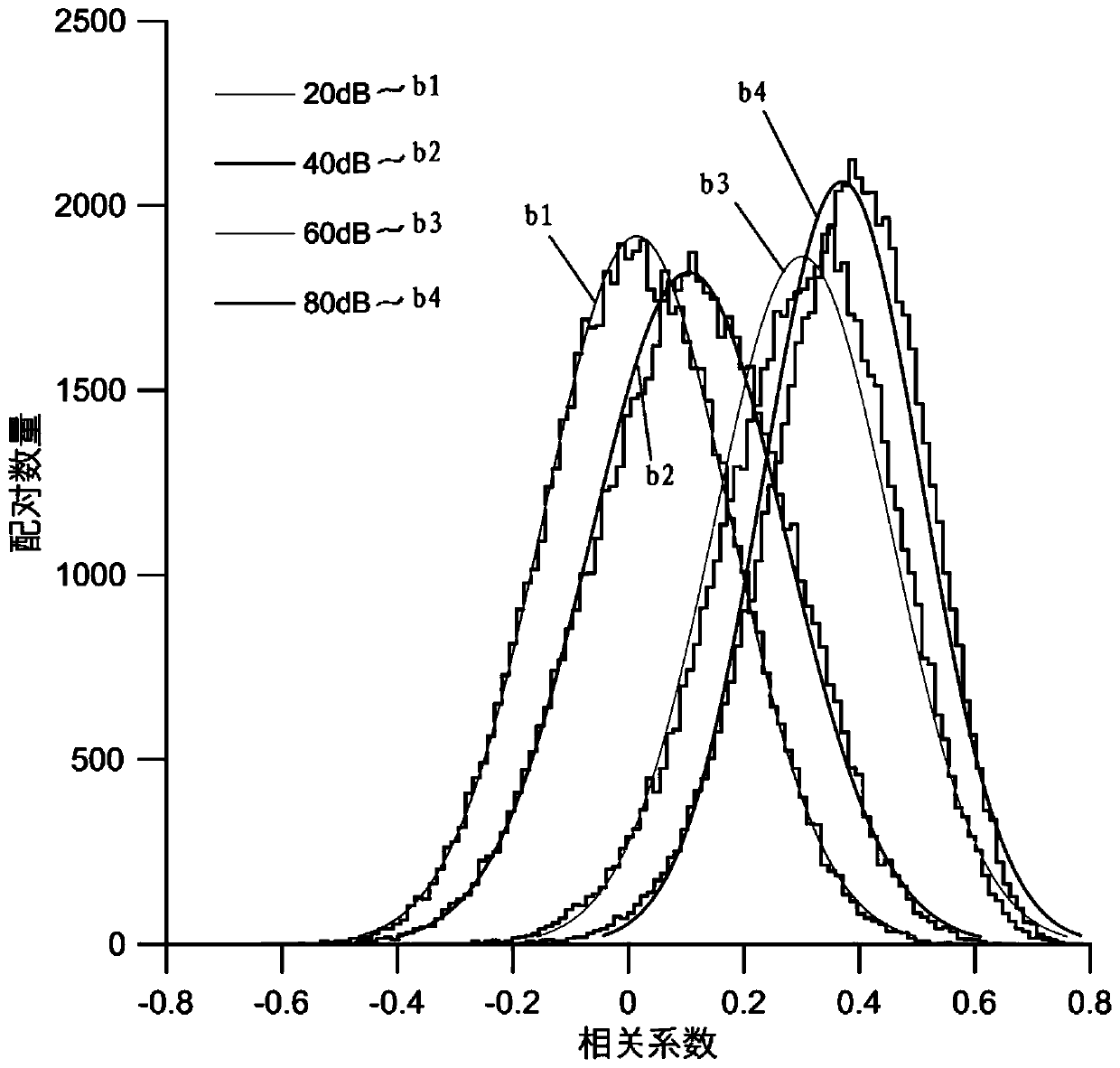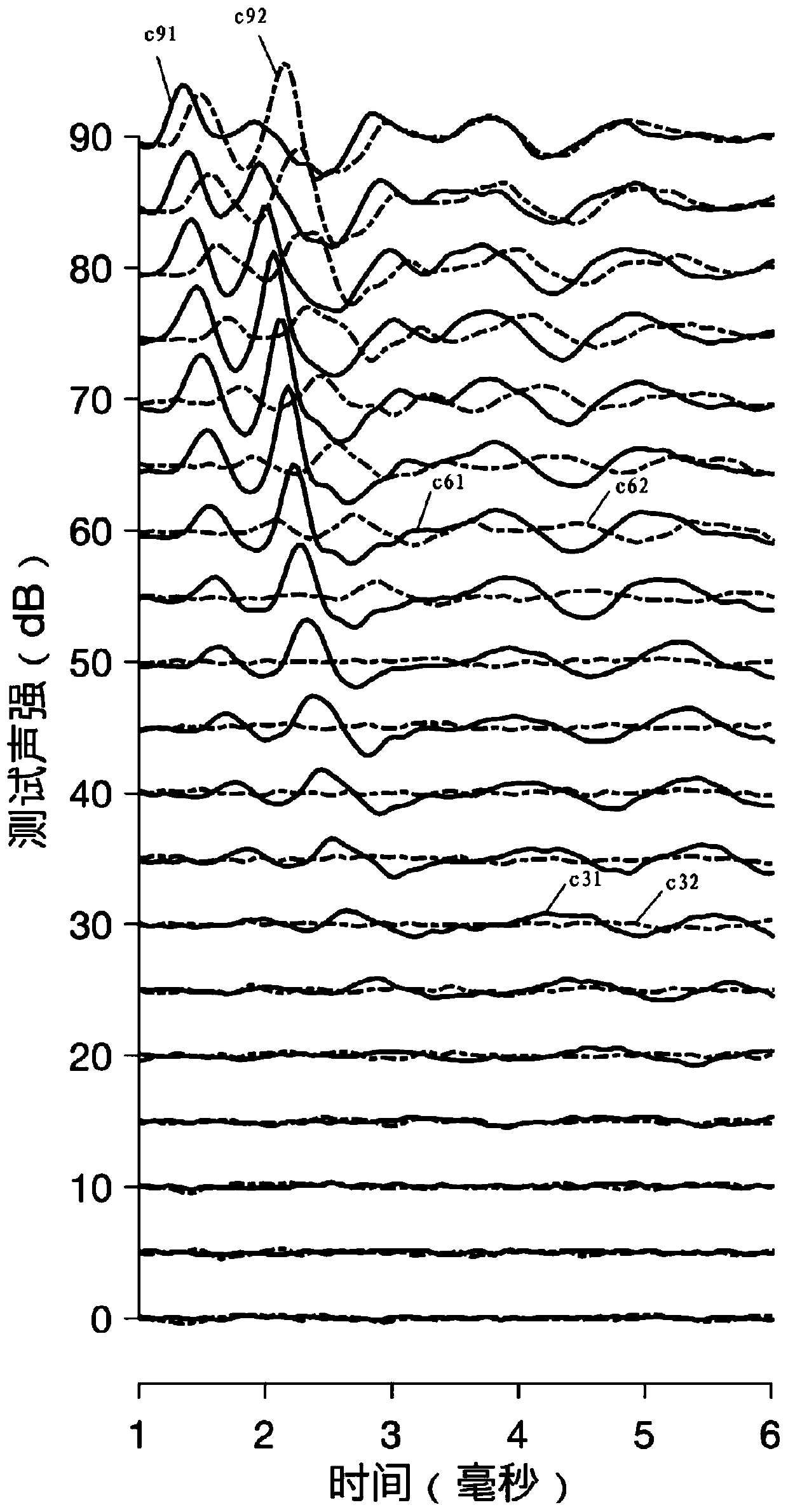Automatic Data Processing Method Based on Adaptive Averaging Method in Auditory Brainstem Response Test
A technology of automatic processing and average method, applied in the field of data processing, can solve problems such as failure to meet clinical needs, accuracy dependent, difficulty in hearing screening of infants and young children, etc.
- Summary
- Abstract
- Description
- Claims
- Application Information
AI Technical Summary
Problems solved by technology
Method used
Image
Examples
Embodiment Construction
[0072] For a given sound stimulus (often using short sounds, short pure tones), the auditory system will produce a series of potential responses. Auditory brainstem response (ABR) test, by recording the waveform changes of these potentials, and using various digital signal processing algorithms to extract them from various strong noise backgrounds, the auditory brainstem evoked potentials are obtained as an evaluation of the auditory conduction system An important indicator of integrity and monitoring nervous system function.
[0073] The invention proposes an algorithm model based on the self-adaptive average method, which can automatically process the data signals obtained in the ABR test.
[0074] First, briefly describe the traditional testing method and the principles involved in the present invention:
[0075] Traditionally, physicians analyze raw records obtained from ABR tests, such as Figure 1A Four sound intensities (80dB, 60dB, 40dB, 20dB) are given respectively, ...
PUM
 Login to View More
Login to View More Abstract
Description
Claims
Application Information
 Login to View More
Login to View More - R&D
- Intellectual Property
- Life Sciences
- Materials
- Tech Scout
- Unparalleled Data Quality
- Higher Quality Content
- 60% Fewer Hallucinations
Browse by: Latest US Patents, China's latest patents, Technical Efficacy Thesaurus, Application Domain, Technology Topic, Popular Technical Reports.
© 2025 PatSnap. All rights reserved.Legal|Privacy policy|Modern Slavery Act Transparency Statement|Sitemap|About US| Contact US: help@patsnap.com



